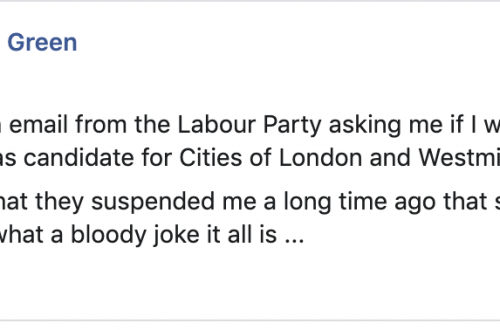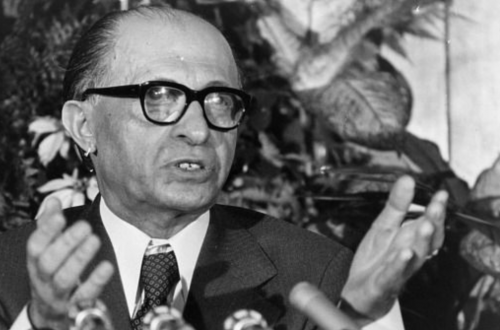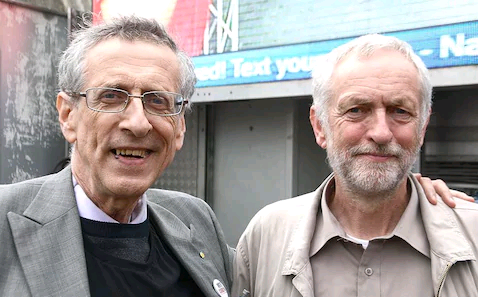This is a cross post from BBC Watch by Hadar Sela
On November 21st 2012, the programme ‘Newsround’ which is produced by the children’s section of the BBC – CBBC – put out an item entitled “Guide: Why are Israel and the Palestinians fighting over Gaza?“. Whilst there is much to critique in the article itself – not least its ridiculously mistaken title – at the bottom of it, readers will notice this announcement:
So what brought about such a speedy change in the wording of this article?
The answer to that question can be found of the website of CAABU – the Council for the Advancement of Arab-British Understanding – which, on November 22nd, announced that it had made a formal complaint regarding the ‘Newsround’ item of the previous day.
On December 6th, the CAABU website announced that changes had been made to the item and provided a link to the BBC’s response of December 3rd to CAABU’s complaint.
Many BBC Watch readers will no doubt be amazed by the unusual alacrity of the BBC’s response to this complaint, but additional factors may go some way towards explaining it.
CAABU was established in 1967, just after the Six Day War, with the declared aim of being “prepared to stand up for Arab and Palestinian rights”, which it achieves, among other means, through extensive lobbying in the British parliament, by campaigning in British schools and through lobbying the media. According to CAABU’s Director, Chris Doyle in an interview given to the Gulf News earlier this year:
“Caabu has a distinguished history of working to change the pro-Israeli atmosphere in British politics in the 1960s and 1970s. Much has changed since then, and the plight of the Palestinians is now widely recognised.
“Today, 70 per cent of the British public support Palestinian rights, which is a huge shift from 1967, when 20 years after the end of the Second World War there was still a lot of sympathy for Israel,” Doyle said.
Caabu’s core mission has been the crucial work of lobbying on key issues concerning British-Arab relations, such as Palestinian rights, making sure that the British government is constructive in its relations with other states based on international law and human rights, helping those countries that are en route to become democracies, and working with both media and schools.
“We talk to between 10,000 to 15,000 school children every year. We are the only organisation in Britain that gives children an opportunity to engage with the Arab World. Dr Amiee Shalan is the head of education, and she manages associate speakers who Caabu trains to speak to 16 to 17 year olds. We try to get them to look behind the headlines. We aim to get them thinking, and provoke them to have a different attitude on how they look to the region,” Doyle said.
A core function of Caabu is to lobby parliament. “At a time when so much is going on the Arab world, British politicians need an organisation which can synthesise everything into an easily understood coherent narrative, so that we can explain the main trends of what is happening in the region.
Caabu regularly takes delegations to the Arab world. It took 19 members of parliament to Palestine last year, and the members saw for themselves what it is like. They themselves felt the impact of the colonies, and the blockade of Gaza among other irritants.
“When they came back to Britain, they were angered and very concerned, and appalled at how the Palestinians are treated,” said Doyle, pointing out that this personal experience encourages them to speak out for Palestinian rights.”
In other words, CAABU is an integral and well-established part of the Arab lobby in the United Kingdom with no fewer than three MPs and two former MPs sitting on its executive committee. Some of those board members, however, can be rather coy about the organization they support and represent.
Several months after the start of the unrest in Syria, commentators began remarking onCAABU’s sudden reinvention of itself as a supporter of the so-called ‘Syrian opposition’, after it apparently became clear even to CAABU that the Assad horse was the wrong one to back. In the framework of the ensuing damage control, CAABU board member and former MP Derek Wyatt posted three letters from fellow board members and staff on his blog. In one of those letters, CAABU co-chair Andy Love MP wrote:
”Caabu has zero links to the British-Syrian Society nor desires any. ”
The British Syrian Society was founded in 2003 by Fawas Akhras – the father in law of Bashar al Assad. His daughter – Asma al Assad – is reportedly a patron of the BSS, which also included among its ranks the Assad regime supporter Wafik Said. Until July 26th 2010, Rim Turkmani – wife of CAABU’s Director Chris Doyle – was a director of the British Syrian Society.
Another director of the British Syrian Society (since March 23rd 2010 and to this day) is Shaza Shannan, who was also vice-chair of CAABU from February 2009 until April 5th 2012. According to the BSS website, Ms Shannan also works as a management consultant for the FCO-funded British Council and was also described as holding a position with that organization when, in 2010, she appeared together with Chris Doyle at an event at the London International Documentary Festival.
“Shaza Shannan is currently the Head of Cultural Committee at British Syrian Society and the Vice Chair at CAABU – she organises events focussed on Middle Eastern issues. She is the Business Change Manager at British Council and also holds a position teaching arabic at SOAS.”
In 2007 Shannan organized a conference on the subject of the Golan Heights in London with the collaboration of the Syrian Media Centre in London (formerly headed by Ghayth Armanazi – also executive director of the British Syrian Society) and the Syrian Embassy. Among those attending was Fawaz Akhras and among the speakers was Jihad Makdissi – Syrian Embassy and Foreign Ministry spokesman from 1998 and until his reported defection at the beginning of December 2012.
Here is CAABU in 2008 advertising via Google Groups – on behalf of the British Syrian Society – a lecture by Brigid Keenan (more on her here).
In other words, CAABU co-chair Andy Love was not being frank when he claimed “zero links” to the BSS and – by extension – the Syrian regime.
But what does all that have to do with the above mentioned complaint about the CBBC children’s programme ‘Newsround’? Well, another board member at CAABU is named Jonathan Fryer – an aspiring Lib Dem MEP, a lecturer at SOAS , a recent participant in the Arab League Conference on Palestine in Baghdad (together with his “chum” Craig Murray) and a past participant in the Doha Conference on Jerusalem. A seasoned anti-Israel campaigner , he is also apparently the man Deborah Fink copies in to her e-mails of complaint about the sacking of Jenny Tonge.
In addition, Jonathan Fryer happens to be a journalist (apparently freelance) for the BBC’s‘From Our Own Correspondent‘ programme.
Whilst Fryer’s dual role as CAABU board member and BBC journalist does not of course guarantee instant compliance with CAABU complaints, it certainly does not seem to be doing any harm. What is odd is that the fact that a board member of an organisation which frequently lobbies the BBC also does work for it – and that this does not appear to be perceived as a potentially problematic conflict of interests by the BBC itself.







